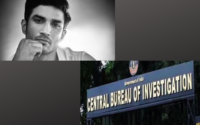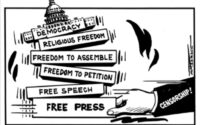Important Judgement related to Appointment of District Judge
IN THE SUPREME COURT OF INDIA,
CIVIL APPELLATE JURISDDICTION
CIVIL APPEAL NO. 7358 OF 2016
(Arising out of SLP(C) No. 17466 OF 2016)
Vijay Kumar Mishra and Another ……Appellants
Versus
High Court of Judicature at Patna and others ……Respondents.
Facts of the case:
The task of the court was to explore and understand the true purpose of Article 233(2) of the Constitution of India in this appeal.
The petitioners were rejected by the respondent to appear in the interview for the post of District Judge Entry Level (Direct from Bar) Examination 2015. The petitioners were members of Subordinate Judicial Service of the State of Bihar and the respondents imposed the condition upon them that they have to tender their resignation to the Subordinate Judicial Service before appearing in the aforementioned interview. The advertisement inviting applications from eligible advocates for the examination was issued on 31st March, 2015. The cut-off date for the eligibility was 5th February, 2015. In pursuant to such advertisement, the petitioners appeared in the preliminary as well as the mains examinations.
In the meantime, they qualified for the Subordinate Judicial Service of the State of Bihar and accordingly joined such service in August, 2015.
In January 2016, it was found out from the results of the Mains Examination of the District Judge Entry Level (Direct from Bar) examination that the petitioners qualified in it. The last step of the selection process was an interview and one of the conditions in the interview was ‘a no-objection certificate of the employer’. Thereafter, the petitioners filed their representation before the Registrar General, Patna High Court, to appear in the interview but the same was rejected on the grounds that they were already in the State Subordinate Judicial Service and in view of Article 233(2) they cannot be permitted to appear for the interview. Article 233(2)(3) declares that only a person not already in the service of either the Union or of the State shall be eligible to be appointed as District Judges.
However, the respondents mentioned that the petitioners may resign their post before appearing in the interview with the warning that such resignation was not liable to be withdrawn later.
This letter became the subject matter of challenge in the present writ application wherein the petitioners claim that since they were eligible on the date of inviting applications, the action of the High Court in not permitting them to appear in the interview is illegal.
The respondents dismissed the challenge on the ground that to permit the appellants to participate in the interview would be a violation of Article 233(2) of the Constitution. Therefore, they are not eligible to seek appointment as District Judge.
Thereafter, the petitioners filed for appeal in the Supreme Court.
Issues:
The Supreme Court expressly stated in the case that the appeal was for the consideration of the true object, purpose and scope of Article 233(2) of the Constitution of India and in particular, the words “eligible to be appointed as District Judge’ occurring in the Article. Therefore, the real question which arises in the case is whether the bar under Article 233(2) is only for the appointment or even for the participation in the selection process.
Decision:
The two-judge bench comprising of Chelameswar J. and A.M Sapre J. in a concurring judgment decided in favour of the appellants and granted leave to appeal. Consequently, the writ petition filed by the appellants was also allowed directing the respondents to permit the appellants to participate in the selection process without insisting upon their resignation from current employment. If the appellants succeed in the interview, it will be left to their choice whether they want to opt for the post of District Judge or remain in the current employment.
Reasoning:
- Chelameswar J. expressly stated that the entire inquiry before the High Court was misdirected as the High Court failed to examine and interpret the true meaning of the aforementioned provision of the Constitution. The insistence of the High Court to resign from their current post is unjust and cruel for the petitioners in the view of the fact that if they accepted the advice and subsequently failed to secure the position as District Judge, it will be a matter of life-long regret for them.
- It is well settled in law that there is a distinction between selection and appointment. Textually Article 233(2) only prohibits the appointment of a person who is already in the service of the Union or the State, but not the selection of such a person. The right of such a person to participate in the selection process undertaken by the state for the post of any public service can be considered as a fundamental right guaranteed under Articles 14 and 16 of the Constitution.
Abhay Manohar Sapre J. in his concurring judgment added the following points: –
- The eligibility of a person applying for the post of district judge has to be seen in the context of his appointment. Whether the candidate is in the service of the Union or State is required to be seen at the time of his appointment for the post and not prior to it.
- Though the respondents contended that the word ‘appointed’ used in Article 233(2) should include the entire selection process till the date of his appointment, the learned Judge refused to accept this contention and stated that when the framers of the Constitution has used the term “appointed” for determining the eligibility of a person, it cannot be read to include the words “selection”, “recruitment”, or “recruitment process”.
Analysis:
It is imperative to interpret the true meaning and purpose of every statute so as to remove all traces of injustice liable to be caused to the citizens. In this case the honourable Supreme Court aptly did that job to give the petitioner a fair chance of securing a better employment without having to let go of the current one. The learned Judges were right to point out the simple fact that even if the petitioner were under the employment of the State Government, still they were liable to participate in the selection process for becoming a District Judge. It would have been a gross miscarriage of justice if their candidature was cancelled or if they were forced to resign from their current employment in order to participate in the selection process.
By:
Pallavi Ray


